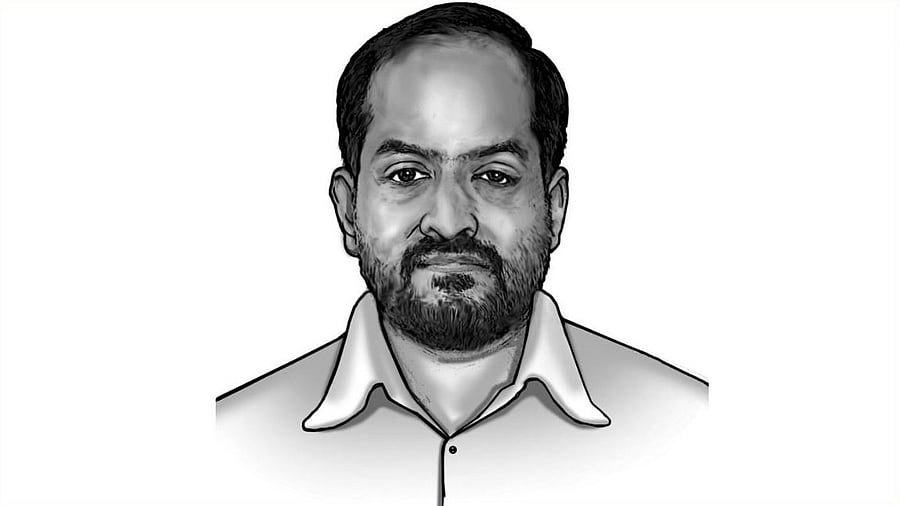
Venkatesh Nayak wakes up every morning thinking someone somewhere is hiding something
Credit: DH Illustration
Old habits die hard. The obsessive, compulsive, (dis)order of maintaining sarkari secrets within government and the banking sector is hard to cure. Despite the Supreme Court ruling in favour of complete transparency about political party financing, SBI continues to hold back crucial information about Electoral Bonds (EBs). The SC sermon about the voter’s right to know who gave how much money to which political party does not seem to have sunk in. Probing into deeper layers of information, not covered by the apex court’s judgement, remains a Herculean task.
Recently, SBI refused to disclose its standard operating procedures for the sale and encashment of EBs. Next, it refused to furnish in digital form the printed information about donors and recipients it submitted to the top court. Then, it declined to reveal how much fee lawyers were paid to resist transparency every step of the way -- before and after the judgement was delivered. This despite the fact that SBI paid them using the money which the public entrusts it with.
While the media is having a field day reporting on the allegedly unholy nexus between many corporate EB buyers and recipient political parties, one uncanny story points to the woeful inadequacy of current disclosures. Six Dalit farmers in Gujarat have allegedly been tricked into investing the Rs 11 crore-plus compensation amount they received for their lands which a corporate house acquired. An official of that company is said to have cajoled them to invest the full amount in Electoral Bonds -- on the twin promises of yielding very high returns and avoiding tax scrutiny. Two political parties, in bed with each other to run the government in a neighbouring state, are said to have encashed those bonds.
This is why SBI must immediately disclose the forms relating to KYC, Beneficial Ownership and Controlling Persons which were filled up along with the EB application forms. These records, not discussed at all in the judgement, might reveal who actually shelled out the money for buying EBs. The applicant might have been just a clerk or a chauffeur serving his master. When I sought the public disclosure of these documents under RTI, recently, SBI invoked not one, not two, but three exemption clauses to deny access.
Readers who are closely following this issue will recall that the court’s transparency directions cover transactions occurring April 2019 onwards but not those from the previous year, when the scheme’s implementation commenced. SBI rejected another RTI of mine seeking this information citing personal privacy of, and trust-based relationship with, the buyers – grounds that clearly do not hold given the SC ruling.
Outside SBI, what deliberations went on within the Modi government after the top court ruled that the EB scheme was unconstitutional? In two nearly identical RTIs, I asked for the official note put up for the consideration of the Prime Minister and the Union Finance Minister about the judgement and their response to it. The PMO transferred the RTI to the Finance Ministry after almost a month. A few days ago, the ministry sent a five-page note, drawn up internally, summarising the contents of the judgement. This note went up the bureaucratic hierarchy, ultimately reaching the Secretary, Economic Affairs. None of them seem to have put any comment on the file. The ministry admitted it had no record of the views of the PM or the Finance Minister on the subject!
Meanwhile, the PM has been warning us through the media that we will regret the demise of EBs because his government lost a tool to track the money that went to political parties. May the soul of EBs, which were purportedly designed to keep donor identity secret even from government, rest in peace!